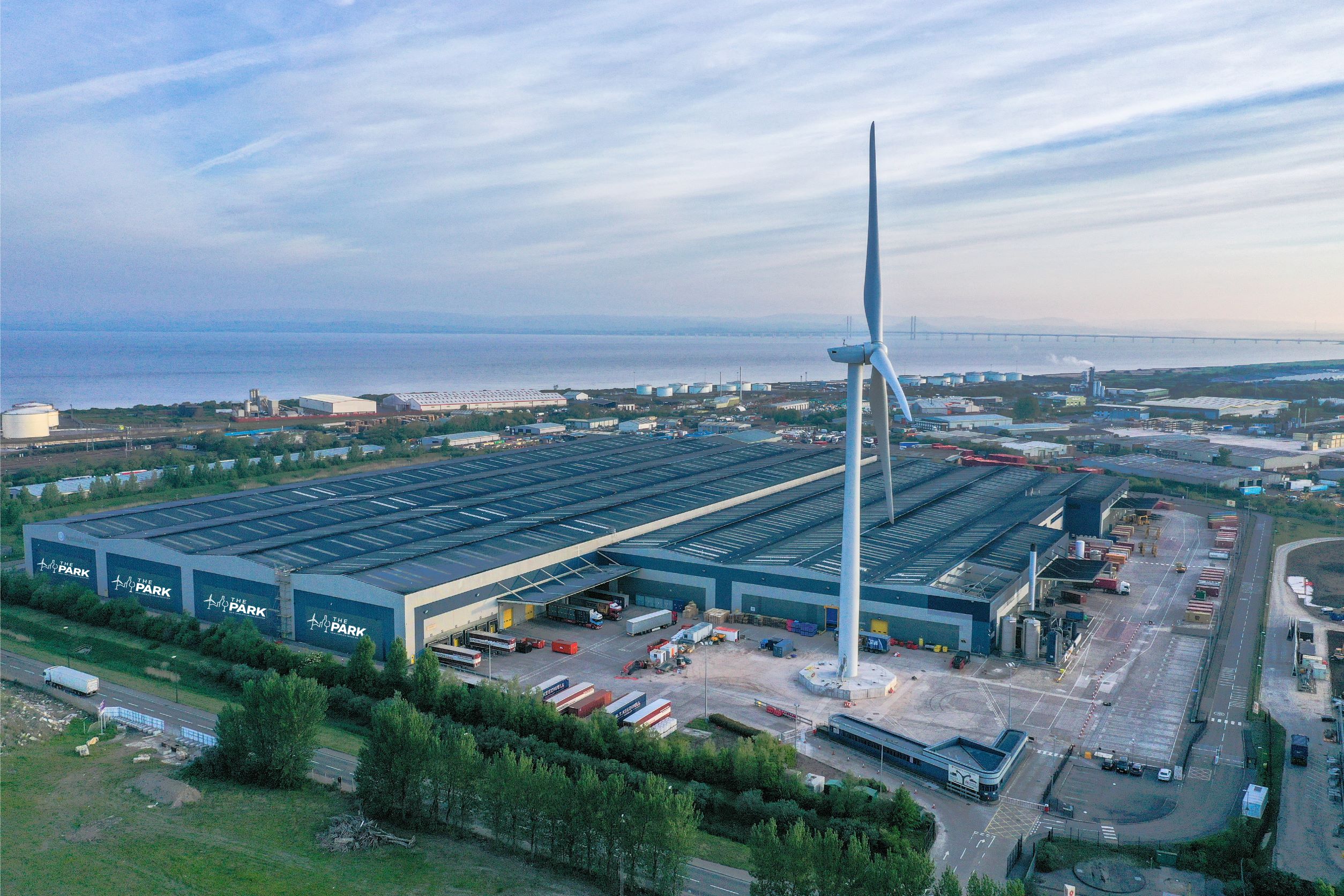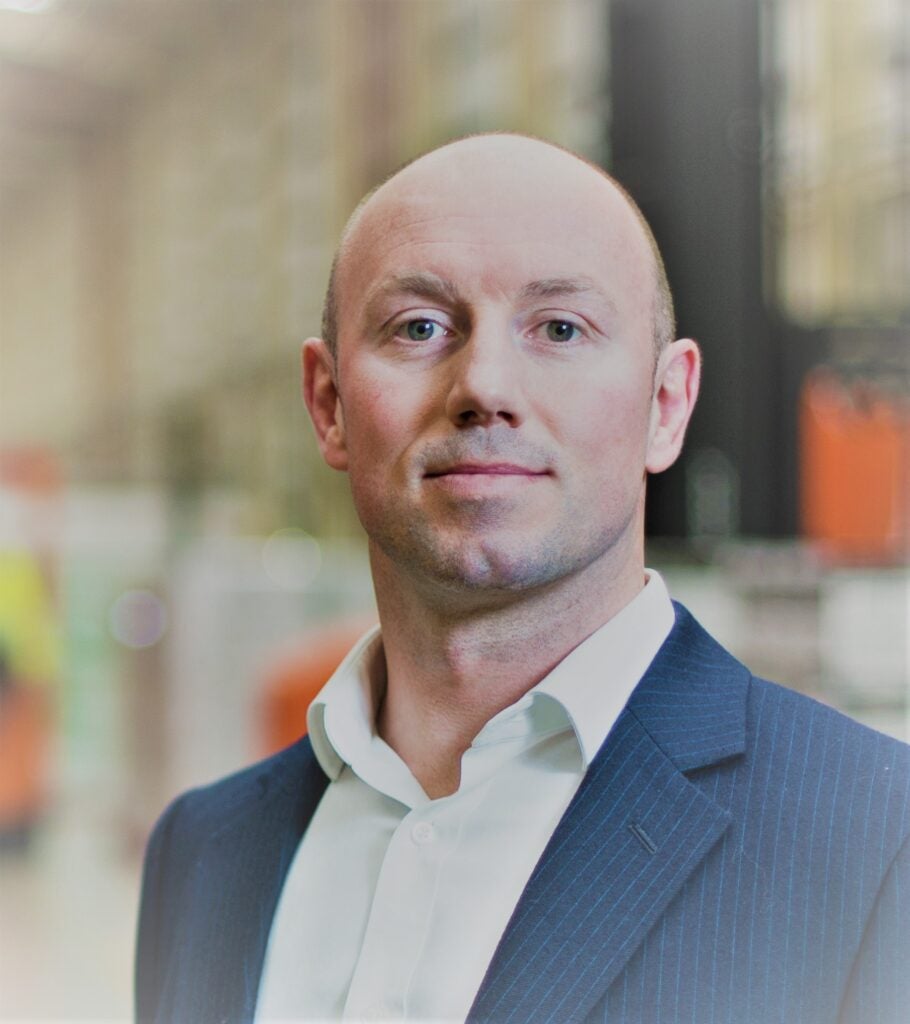
Drinks manufacturing, warehousing and distribution facility, The Park, sends no waste to landfill and uses 100% renewable energy, with half of it being supplied by the UK’s largest on-site turbine. Such feats earned the company the manufacturer excellence TMMX Award for sustainable manufacturing for the fourth time in 2021.

This year The Park partnered with Dutch premier vehicle manufacturers DAF and EV Cargo to introduce an all-electric heavy goods vehicle (HGV) to deliver its product. The Park packages 25% of all the wines sold in the UK and by using electric HGVs that can deliver up to 50,000 bottles a day, it can save 2.68kg of CO2 per litre of diesel not consumed.
He says: “We’ve won the UK sustainable manufacturer of the year for the last three years in a row. When you start to get recognised as a business that is leading in terms of its sustainability efforts, businesses will look to partner with you. DAF looked to partner with us as we are seen as a leading UK manufacturer.
“We only have a couple of HGVs that are all-electric and we will look to grow that number over time.”
Plastic-free
In order for a company to operate at ‘net zero’, it has to look at all aspects of its operations and the use of plastics in packaging is often a challenge. Stretch-wrap is a key tool used in packaging products to transport goods securely, but Europe’s largest wine packaging company, The Park, has created a method that reduces stretch wrap by 50%.
“At the moment, every pallet that goes into a retailer’s distribution centre has a stretch wrap around the outside of it to give it stability when it’s being transported. We have worked incredibly hard to get the stability of our pallet without having that stretch wrap,” Lloyd explains.
The innovation is the result of a layer pad created by the paper supplier and the manipulation of friction using robots to palletise the products and lock them into place, keeping them stable throughout the delivery process. The method has only been applied to the packaging of its canned products but the company is working on adapting the method to its bottled products.
Lloyd admits there was no cost benefit to removing the shrink-wrap due to the investment in cardboard. The idea behind it is to try to eliminate all plastics from the packaging process with the idea being pushed at a number of festivals.
“We now have a pallet that we’re moving into a number of festivals this summer and will arrive and leave with no plastic at all. That’s the initial primary packaging, the secondary in terms of the case and then the tertiary in terms of the stretch-wrap, which nobody has done.”
“As a business, we’ve been quite bold. Particularly in this day and age where you need to look after your margins as costs are going up. The decisions we make will be based on our footprint, and on plastic reduction. We believe if we lead this way, that ultimately over time, we will find a way to take the cost out of the cardboard.”
Sustainable future
Pushing sustainability forwards is a big part of The Park’s ethos. In 2021 the bottling company began 3D printing various machine parts to reduce costs and its overall carbon footprint.
“Our labels that go on to the bottles come on reels and the backing to the reels are plastic. When the plastic is removed you end up with quite a bit of plastic waste and the normal process is to wind this up and send that off-site. What we do on-site is 3D print a number of our machine parts. The backing material on the labels is put through an extruder and made into the filament that will build the part,” he continues.
“From a sustainability standpoint, this printing of parts with 3D is more sustainable because you’re not shipping your parts in Germany and you’re saving money.”
Lloyd tells Packaging Gateway The Park has a number of sustainable projects on the go
including 3D printing, label backing and solar manufacturing. He also states that having a closed loop system saves the company money.
“You have to go after each element of your supply chain with the same vigour and ultimately, you’ll end up in a position where you’re just much better off. Whether you’re selling more because consumers now put more value on the sustainable element, or businesses want to work with you because you’re seen as the leading light and everyone wants to catch up on that sustainability journey.”







